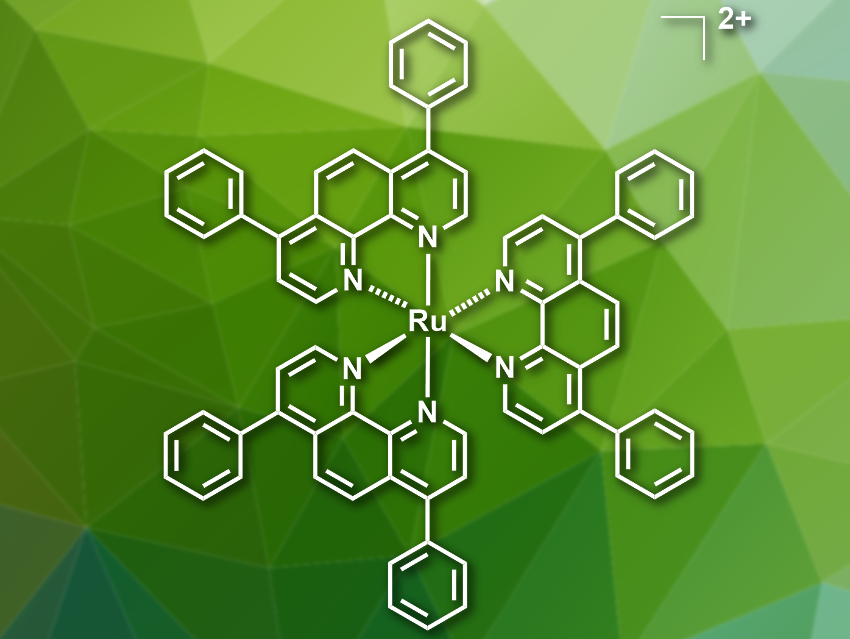Microtubules are microscopic hollow protein tubes inside cells. They are part of a network of filaments that gives a cell its shape and stability. Microtubules consist of the proteins ɑ-tubulin and β-tubulin, which form dimers that then assemble into larger structures. The tubules constantly add and remove dimers, i.e., they exist in a dynamic equilibrium.
Drugs can target microtubules and either aim to stabilize or destabilize them. Some microtubule-stabilizing agents, for example, have been used in the treatment of cancer. The natural products which have shown promise for this are often very complex, with many fused rings and chiral centers. This makes them hard to synthesize, especially in bulk.
Frederick M. MacDonnell, University of Texas at Arlington, USA, and colleagues have shown that simple ruthenium(II) polypyridyl complexes can enter cells through passive transport and stabilize microtubules. The team synthesized tris(4,7-diphenyl-1,10-phenanthroline)ruthenium(II) (pictured) from RuCl3 and 4,7-diphenyl-1,10-phenanthroline (DIP) in ethanol. The chloride salt of the complex was then used to study its effect on microtubules. It was tested both in vitro and in vivo on malignant and non-malignant cells.
The results show that the complex can stabilize microtubules and stop cell growth. Although further studies are needed, this shows that the Ru complex could be a potential antitumor agent available via a simple synthesis.
- Disruption of microtubule function in cultured human cells by a cytotoxic ruthenium(ii) polypyridyl complex,
Nagham Alatrash, Faiza H. Issa, Nada S. Bawazir, Savannah J. West, Kathleen E. Van Manen-Brush, Charles P. Shelor, Adam S. Dayoub, Kenneth A. Myers, Christopher Janetopoulos, Edwin A. Lewis, Frederick M. MacDonnell,
Chem. Sci. 2019.
https://doi.org/10.1039/c9sc05671h




